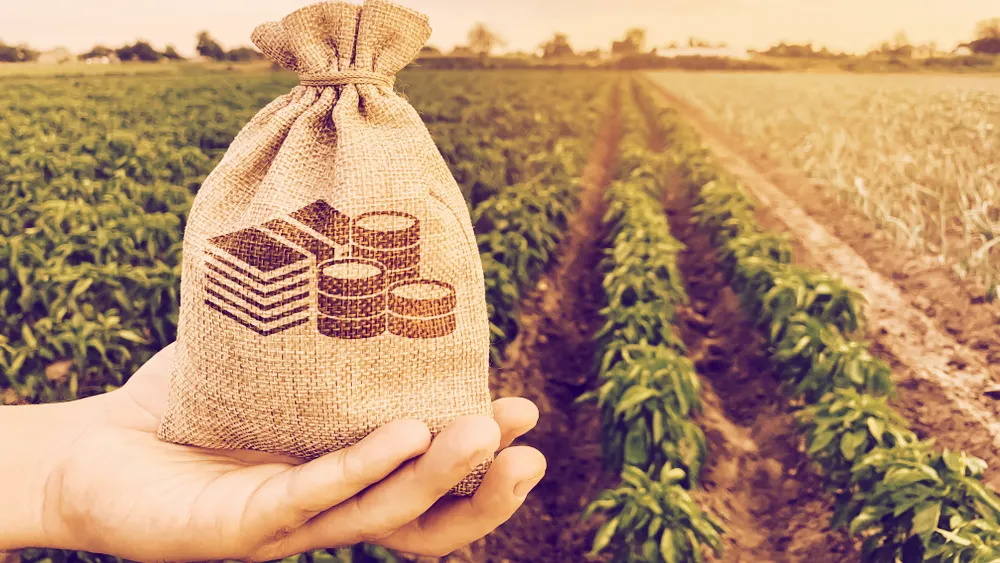In brief
- SUKU unveiled SUKU DeFi today to help farmers, ranchers and other small players in the supply chain access microloans.
- The protocol is live starting today.
Blockchain-based supply-chain provider SUKU today unveiled a new microfinancing ecosystem that will provide lending services to farmers, ranchers, and other small businesses. SUKU says the mission of its SUKU DeFi protocol is to incentivize the participation of people who might not have access to financial services such as microlending.
Straight Outta Los Gatos
Los Gatos, California-based SUKU, an example of a supply chain as a service (SCaaS) company, launched in 2016 to make supply chains more transparent and accessible to users. It uses a hybrid approach for payments and transactions—the Ethereum blockchain for public payments, and the SUKU Token and ConsenSys’s Quorum blockchain for private, supply-chain transactions.
One customer True Tribe, a Paris-based “producer of handcrafted activewear using recycled plastic waste,” uses the SUKU supply chain to track clothing products and prove to stakeholders its claims of authenticity, legality, and sustainability. Other companies that use SUKU include Cencosud, the third-largest retail chain in Latin America, and Avery Dennison, the largest manufacturer of near-field communications in the world; it partnered with SUKU in May 2020 on COVID-19 test kits and PPE traceability.
Now the company is adding DeFi to its product suite to help under-served people avail themselves of some of the financial fruits of the Web3 bounty.
How SUKU DeFi works
The protocol is designed for supply chain participants to ask for and receive loans. What makes SUKU's mission especially interesting is that it focuses on people that might not have access to a stable Internet connection necessary to use most DeFi products—SUKU is targeting small farmers and local craftspeople and people looking to make a social impact. Users can interact with the SUKU DeFi protocol via SUKU's TextMeCrypto service, which facilitates sending, receiving, and swapping ERC20 Tokens via SMS text or WhatsApp.
When a supplier inputs data to the SUKU ecosystem to verify product transparency, they get paid. The suppliers can then use those rewards as collateral to ask for a microloan via SMS. (US citizens can add liquidity but they cannot get SUKU’s eponymous token.)
"We are very pleased to release SUKU DeFi with the goal of providing those who have been disenfranchised from traditional finance with access to key services, including microlending. Brands and retailers can show support for social impact initiatives by making SUKU DeFi available to their suppliers as well," Yonathan Lapchik, CEO of SUKU, told Decrypt.
SUKU’s eponymous token, SUKU, is trading at around $0.16 and has a total supply of 1.5 billion. The token price is down around 60% from its high when it was first offered in August.
SUKU DeFi is live, and TextMeCrypto is live on the Kovan testnet with a scheduled mainnet release in early this year.

